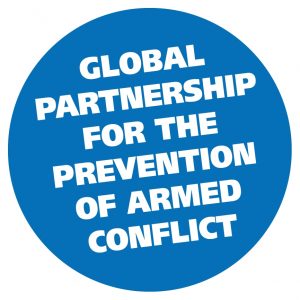100 years of International Women’s Day: The Need for Women’s Full Participation in All Areas of Peace and Security to Enhance Conflict Prevention and Ensure Sustainable Peace
100 years of International Women’s Day:
The Need for Women’s Full Participation in All Areas of Peace and Security to Enhance Conflict Prevention and Ensure Sustainable Peace
On 8 March 2011 the world will celebrate International Women’s Day for the 100th time. This date provides an opportunity to take stock of developments in the area of Women, Peace and Security (WPS). At both national and international level, UN Security Council Resolution 1325 (and subsequent UN Resolutions) has been a key tool to address WPS issues, and to remind UN Member States of their commitments. The celebrations of the 10th anniversary of UNSCR 1325 in October 2010 have shown that some attempts at implementing WPS commitments have been made, including the development of several National Action Plans (NAPs) the development of National Action Plans (NAPs) to implement UNSCR 1325 in several countries.
However, there is still a lack of attention paid to women as actors whose perspectives and participation are key to peace and security. While more attention to violence against women is needed, this should never be in isolation from efforts aimed at greater participation of women – otherwise it risks reinforcing the image of women as mere passive victims of violence.
On this International Women’s Day, we would like to reiterate one of the key recommendations of UNSCR 1325, which has also been identified as one of the five priorities for the work of UN Women:
Strengthening implementation of the women, peace and security agenda, through women’s full participation in conflict resolution and peace processes, gender-responsive early warning, protection from sexual violence and redress for its survivors in accordance with UN resolutions.
Original statement by Ms. Michelle Bachelet, Under-Secretary-General and Executive Director, at the First Regular Session of the Executive Board of UN Women, January 2011
Putting women’s full participation in conflict resolution and peace processes on the priority list is in line with recommendations made by civil society, including the “Commitments for Action to Advance UNSCR 1325” by the Civil Society Advisory Group to the UN on Women, Peace and Security (CSAG) (available at www.peacewomen.org/portal_resources_resource.php?id=1068) as well as the CSO Position Paper “10 Points on 10 Years UNSCR 1325 in Europe” which was signed by more than 80 civil society networks and organisations worldwide (http://www.eplo.org/assets/files/2.%20Activities/Working%20Groups/GPS/CSO_Position_Paper_10_Points_on_10_Years_UNSCR_1325_in_Europe_1008.pdf). Both statements advocate for more political and financial support to women’s participation in matters of peace and security, support for and engagement with civil society organisations working on the WPS agenda, and for ensuring dedicated resources to make WPS commitments a reality. During the 55th Commission on the Status of Women civil society called on international organisations such as UN Women to establish operational mechanisms for a more effective engagement with civil society.
For detailed suggestions to further implementation of SCR 1325 and related WPS commitments in and by Europe please refer to the CSO position paper ’10 Points on 10 Years UNSCR 1325’.
On International Women’s Day 2011, we call for the full participation of women in all areas of peace and security, including political and financial support for women’s participation in peace and security decision-making processes. Enhanced participation of women in peace processes will contribute to efforts aimed at establishing peace and security for all.
For further information on the background of this statement and on GPPAC’s work on gender please contact Ms. Gesa Bent, Coordinator Gender at GPPAC’s Global Secretariat, at g.bent@conflict-prevention.net.
GPPAC can be found at www.gppac.net, at www.peaceportal.org, and on Facebook & Twitter.
Full PDF: http://www.cries.org/wp-content/uploads/2011/03/GPPAC-Statement-for-IWD_2011.pdf
For more information about implementation of UNSCR 1325 in Europe, at EU- and national level, or the CSO position paper ’10 Points on 10 Years UNSCR 1325 in Europe’, please contact Ms. Sanne Tielemans, Coordinator of EPLO’s Working Group on Gender Peace and Security, at stielemans@eplo.org.

